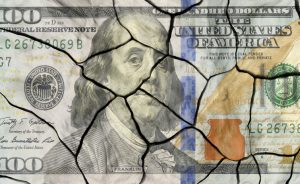Broken Markets and Fragile Currencies
The comments below are an edited and abridged synopsis of an article by Alasdair Macleod
There are growing signs that the global economic slowdown is for real. The combination of the peak of the credit cycle coupled with trade protectionism are similar conditions to those of 1929, and potentially pose a serious economic challenge to the fiat currency system. We must consider the consequences if monetary policy fails to contain the developing recession and it turns into a full-blown slump.

Complacency over broken markets is no longer an option, with rising prices for gold and Bitcoin signaling the prospect of a new round of currency debasement to avoid market distortions unwinding. This article shows why such an outcome could undermine fiat currencies entirely, and looks at the alternatives of gold and Bitcoin in this context.
Up for discussion: An introduction, detailing the distorted financial markets worldwide; heeding the message from the credit cycle; trade protection and the credit cycle; Bitcoin, the king of the cryptos; Keynes’s comment on debauching the currency; and gold, the only money that survives all.
It is likely that the recent strength in gold and Bitcoin is linked to changing perceptions of risk to the global economy. The end of the expansionary phase of the credit cycle, coinciding with trade protectionism, has damaged global trade, and the effects are now being felt worldwide. Expect a renewed acceleration of monetary inflation. While new QE is coming in the US, the wealth-transfer effect of monetary inflation will increasingly undermine the economy.
That is why gold and Bitcoin prices could turn out to be an early warning of an acceleration in the rate at which fiat currencies will lose purchasing power. If leading nations fail to protect their currencies through their central banks, then these two alternatives to fiat currencies will have just started to rise.
